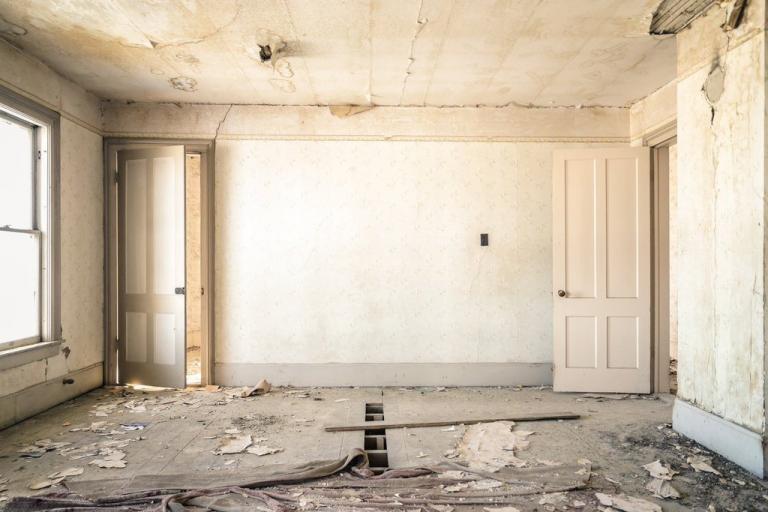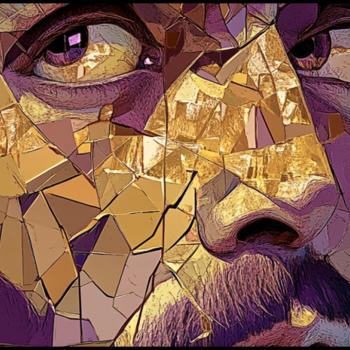
“In the case of fundamentalist beliefs, people expect that choosing to leave a childhood faith is like giving up Santa Claus – a little sad, but basically a matter of “growing up.”
“But religious indoctrination can be hugely damaging, and making the break from an authoritarian kind of religion can definitely be traumatic. It involves a complete upheaval of a person’s construction of reality, including the self, other people, life, the future, everything.
“People unfamiliar with it, including therapists, have trouble appreciating the sheer terror it can create and the recovery needed.” – Marlene Winell, PHD.
There are a lot of people who are deconstructing their faith today. Some are high-profile Christian theologians, authors, artists, musicians and pastors like Joshua Harris, Derek Webb, David Bazan, Bart Ehrman, Michael Gungor and several others.
But outside of those minor religious celebrities who have experienced this painful process of unraveling their faith in God and Christ, there are probably hundreds of thousands of average Christians who are quietly, but nevertheless completely undergoing a complete deconstruction of their Christianity.
I know what that’s like. I’ve been undergoing my own deconstruction process for about 11 years now. For me, it started with the realization that the Gospel I grew up with wasn’t the actual Gospel that Jesus taught. Instead of saying a prayer so I could go to heaven when I die, the Gospel that Jesus proclaimed was all about entering the actual presence of God right here and right now – not sometime after this life was over.
Once that reality sunk in, everything else started to come apart at the seams for me.
Next was evangelism, then came the modern version of what Church was supposed to look like, then came the need to focus more on serving people in need rather than grow a large mega-church and put butts in the seats.
From there I began to deconstruct my views about Hell, the Cross, Salvation, the End Times, Homosexuality and even how to think about the Bible.
I wrote blog articles about my doubts and published books about my newfound realizations. Along with that came the double-edged sword of agreement – from those who were starting to ask the same questions – and condemnation – from those who felt the need to defend the status quo from boat-rockers like me.
I was called “Heretic”, “False Teacher” and a whole lot worse.
But those attacks from strangers on the Internet were peanuts compared to the total rejection and dismissal of dear friends, fellow pastors and sometimes even my own family members who just couldn’t find it in their hearts to love me as a brother in Christ because I disagreed with them on a particular doctrine or belief.
That was the most painful part.
But, I also took comfort from knowing that I was not alone in that either. There were so many others who came to me privately and told me their stories of rejection by pastors, friends and family over differences in theology.
Over the last 3 years now, I’ve published a trio of best-selling books that have helped many people to further deconstruct the toxic entanglements of faith and politics, the worship of the Bible, and the hierarchical power structures of the Church itself.
I’ve also had the honor of co-hosting a podcast called The Heretic Happy Hour which has become sort of a voice for many people who are going thru the deconstruction process. Thanks to our little hour-long show, thousands of people are discovering they are not alone in the universe and that it’s ok to ask questions about the faith they were born into.
But here’s something I’ve just recently started to realize: With all of this focus on “Deconstruction”, there is apparently very little attention paid to the need for “Reconstruction.”
For example, some people I know personally have followed their doubts all the way outside the faith. Much like those high-profile Christian “celebrities” I mentioned earlier, they’ve questioned everything and ended up with nothing to believe in.
And I get it. I really do. There was one point in my own deconstruction process when I nearly lost my faith entirely. In fact, if it wasn’t for the kind attention and gentle counseling of my wife, Wendy, I might seriously have gone off the edge of the cliff and never returned.
For many people, there is no one in their life to do that for them. They have no one to process their doubts with and no resources for reconstructing their faith once they’ve burned it all down.
What really concerns me, honestly, is the emotional damage of deconstruction. As in the quote by Dr. Marlene Winell above, most people don’t understand just how traumatic it can be to lose your faith in God, and in the Church, and in the Bible, and for some, even in Jesus.
To make matters much, much worse, there is the added trauma of being shunned by your friends, cut off from your Church community and treated like a heretic by your own family members over differences of belief.
How does anyone survive something like this?
I know many times I would look at myself in the mirror and ask myself, “Why can’t you just stop asking so many questions?”
But, I can’t do that. And many people I know can’t either.
Because once you know something, you can’t un-know it. Once you’ve seen something, you cannot un-see it.
And so, we are left with an impossible choice: To pretend we still believe things we know are not true – for the sake of unity and continued relationships – OR, we open our mouths and share what we’ve learned and face the furnace of doubt and the rejection of those we love most of all.
Most of us can’t pretend. Not for very long.
So, eventually, our truth becomes known. Our views become spoken. And then our character gets questioned and the condemnation begins.
But, what if there was a place people could go to get help and to heal after this painful deconstruction process is through?
What if there was some way to help provide tools for reconstruction to those who have deconstructed and have no foundation left to stand on?
What if someone could take the time to map out the process for healing, and forgiveness, and letting go to both give and receive practical grace?
Those are the questions I’ve been asking the last few months now. And I think I’ve got an answer.
After a lot of prayer and soul-searching, I decided to take what I know, and compile a basic road map for reconstruction to help people survive toxic Christianity.
It won’t be easy. I know that.
It will take some time. But, if you want help moving forward I invite you to join me at Square 1.
Our journey begins September 30, 2019. I only have 12 seats available.
Details HERE.
**
Keith Giles was formerly a licensed and ordained minister who walked away from organized church 11 years ago, to start a home fellowship that gave away 100% of the offering to the poor in the community. Today, He and his wife live in Meridian, Idaho, awaiting their next adventure.
Can’t get enough? Get great bonus content: Patreon page.













